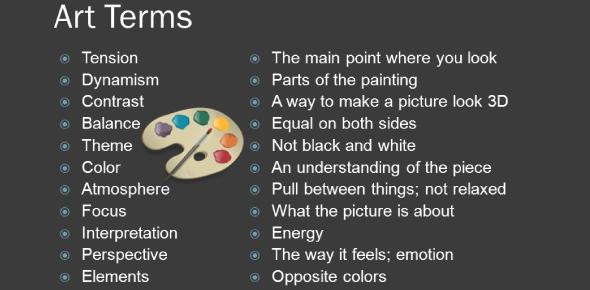Mali Dissolves All Political Parties Amid Intensifying Political Turmoil Following Opposition Detentions
In a dramatic and unprecedented move shaking the West African region, Mali’s transitional government has officially disbanded every political party operating within its borders. This sweeping decision comes on the heels of multiple high-profile arrests targeting opposition leaders, sparking widespread concern both inside Mali and internationally about the future of democracy in the country. Confronted with ongoing military rule and persistent security challenges, this bold action risks exacerbating political instability while severely restricting civil freedoms. This article delves into the factors driving this development, analyzes reactions from key stakeholders, and evaluates its implications for Mali’s fragile democratic progress.
Mali’s Deepening Political Crisis: The End of Party Politics
The recent eradication of all registered political parties in Mali marks a pivotal moment amid an already precarious political landscape. Prompted by the detention of prominent opposition figures—widely condemned as politically motivated—the ruling junta appears to be intensifying efforts to consolidate control amid mounting public frustration. Many experts view this crackdown as a deliberate attempt to silence dissent ahead of any meaningful national dialogue or electoral process.
Several critical elements underpin this destabilizing shift:
- Rising Authoritarianism: The clampdown on opposition voices raises significant human rights alarms.
- Political Representation Gap: With parties dissolved, citizens lose formal avenues for engaging in governance.
- Economic Consequences: Prolonged unrest threatens foreign investment vital for an economy already under strain.
International actors have responded promptly with calls urging respect for democratic principles and restoration of inclusive governance frameworks. Without renewed cooperation among diverse political factions, analysts warn that Mali risks sliding back into cycles of violence reminiscent of previous Sahel conflicts.
| Recent Developments | Resulting Effects |
|---|---|
| Dissolution of All Political Parties | Create leadership void; further alienate electorate |
| Arresting Opposition Leaders | Squelch free speech; heighten social unrest |
| Global Condemnation & Diplomatic Pressure | Shed light on governance failures; demand reforms compliance |
Democratic Fallout from Banning Political Parties in Mali
The comprehensive prohibition against all political parties represents a critical setback threatening years-long democratization efforts following earlier coups d’état. By marginalizing organized opposition groups, authorities risk entrenching authoritarianism marked by reduced transparency and accountability.
Key consequences include:
- Concentration Of Power: Absence of competing parties may lead to unchecked executive dominance undermining institutional checks essential for democracy.
- Erosion Of Civic Engagement:Suppressing formal platforms limits citizens’ capacity to peacefully advocate their interests or challenge policies.
- Diminished Role Of Civil Society:Political organizations often act as bridges between grassroots communities and decision-makers; their removal could deepen societal exclusion from governance processes.
This trajectory risks transforming state institutions into opaque entities less responsive to public needs while increasing potential abuses under diminished oversight.
Global Efforts To Reinforce Democracy And Civic Participation In Mali
In light of these developments, it is crucial that international stakeholders escalate diplomatic engagement aimed at reinstating inclusive politics within Mali. Targeted sanctions against individuals responsible for undermining democratic norms can serve as effective deterrents against further repression.
Recommended strategies include:
- Pursuing Dialogue Initiatives:Facilitating mediated discussions between government officials and opposition representatives is essential to rebuild trust.
- Supporting Civil Society Organizations: strong >Backing NGOs and local advocacy networks empowers citizen-led oversight during periods when formal politics are restricted.
- < strong>Tightening Human Rights Surveillance: strong >International watchdogs must continue documenting abuses while raising global awareness about deteriorations in freedoms.[1] li >
ul>Moreover, directing financial assistance toward programs enhancing electoral transparency will help establish foundations for credible elections once stability returns.
Tactical Actions Main Responsible Entities Implement targeted sanctions United Nations (UN), European Union (EU), United States Government (USG) Promote inclusive negotiations African Union (AU), Economic Community Of West African States (ECOWAS) Empower grassroots movements Non-Governmental Organizations (NGOs), Local Advocacy Networks Monitor human rights conditions Amnesty International, Human Rights Watch Concluding Reflections on Mali’s Escalating Political Upheaval
Mali’s sudden ban on all party activities amidst ongoing detentions signals a troubling decline in its democratic health. This decisive measure not only intensifies internal divisions but also risks isolating Bamako diplomatically at a time when regional collaboration is vital given escalating security threats across the Sahel.
Observers remain cautiously optimistic that sustained international pressure combined with domestic advocacy might guide Mali back toward participatory governance structures necessary for lasting peace.
As events rapidly evolve throughout 2025—with UNHCR reporting over half a million displaced due to conflict fueled by weakened institutions—the global community watches closely how these shifts will influence not only Malian society but also broader stability across West Africa.[2]
—
[1] Recent investigations reveal ongoing violations comparable in severity to those documented during other armed conflicts worldwide.
[2] According to UNHCR data released early 2025, displacement trends correlate directly with worsening insecurity exacerbated by fragile state mechanisms.

